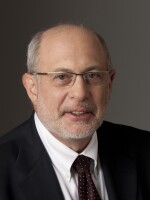MICHELE NORRIS, host:
From NPR News, this is ALL THINGS CONSIDERED. I'm Michele Norris.
China is warning that the number of people killed in Monday's earthquake could reach as high as 50,000. For now, the confirmed death toll is about 20,000. You've been hearing my co-hosts, Melissa Block and Robert Siegel, reporting from Sichuan Province in Southwest China. Today, Robert brings us an interview that was arranged before the disaster, an interview with a Chinese athlete who's headed to the Summer Olympics in Beijing, an athlete who's also a big name in the U.S.
ROBERT SIEGEL: When we first made plans several months ago to come to Chengdu in May and to report on the daily lives of people in this big, busy city of four and a half million, I thought we should touch a little at least on sports. And as an American, I've been impressed by the popularity of basketball here - many play it, and many more watch it. In fact, one of the best-known faces in all of China is that of Yao Ming, the seven-foot-six-inch center of the Houston Rockets of the National Basketball Association.
So it's probably some measure of globalization that I am in Chengdu, and joining us from Houston is Yao Ming. Welcome to the program. And I know that you've been concerned about the story that's consumed us here in Chengdu in Sichuan province, and that's the earthquake. What are your thoughts at this time?
Mr. YAO MING (Houston Rockets): Oh, it's very sad news. You know, even though I'm not from there, but you know, that's still my homeland. I feel so sad for people who're living there. Hopefully they're well. And right here I tried to organize some more people who I know can donate something, donate money and also do anything we can, help the people over there.
SIEGEL: Yes, you announced a gift of half a million yuan, about $70,000 for relief. Have any other of your teammates in the NBA joined you in contributing?
Mr. YAO: We have a, you know, plan will come out in next few days. We'll see what will happen next.
SIEGEL: Yeah. You are from Shanghai. Any personal connection at all to Sichuan or no?
Mr. YAO: Actually, my wife is there right now. You know, Shanghai is about two-and-half-hour flight from Chengdu so she - she's right there. And my family members is all safe, OK.
SIEGEL: I know you played for Shanghai in the China Basketball Association before you came to the U.S. I didn't see a Chengdu team in the league. Did you ever play in this city?
Mr. YAO: Well, at my first two years in the CBA, which is the China Basketball Association, they have a team over there. And the people who are living there is, you know, huge fans of basketball.
SIEGEL: Does a sports star like yourself, do you think you enjoy a different role in Chinese life than, say, Shaquille O'Neal did in American life? Is a great star athlete, do you have the same position in society?
Mr. YAO: A little bit difficult for me. I'm living two lives, which is in China and here, you know, besides two countries they have a lot of different cultures, obviously the language is different. And if I say something here in our way, maybe U.S. people feel uncomfortable. You know?
SIEGEL: What have been examples of that when your meaning has been lost in translation?
Mr. YAO: Like a couple months ago, before my surgery, before my foot surgery. You know, people ask me about Olympics. There's a, you know, Chinese media. And I say that's a big dream, you know, when Olympics come to China, but for the U.S. people, you know, they want to know - who pay you? You know? Who you play for right now?
SIEGEL: You mean, Americans wanted you to say nothing is better than playing for the Houston Rockets in the NBA finals. That should be more important than the Olympics.
Mr. YAO: I think not all the fans, you know. I think more and more fans understand me. You know, feel - make me feel more comfortable. But still, you know, you can't make everybody happy.
SIEGEL: How do you handle the fact that playing in the Olympic Games in China, a dream come true for you, for many other athletes and for many Chinese citizens, has been such a subject of controversy, with some national leaders saying they won't go to the opening ceremonies in protest against what the Chinese government does in Tibet. How do you react to all that?
Mr. YAO: You know what? I can tell you a story. Everybody knows Olympics come from Greece, right?
SIEGEL: From ancient Greece, yes.
Mr. YAO: Yeah, back 2,000 - a couple thousand years ago. When Olympics happens, you know, different cities, different countries, they stop war for a couple of days for that. Olympics make people communicate and stay together,even their enemies; you know, they will stop war and stick together and shake hands, make friendly, you know? And now it's - Olympics is - too many people want to use Olympics. I'm against that.
SIEGEL: Well, Yao Ming, thank you very much for talking with us today and good luck with your foot.
Mr. YAO: All right, thank you.
SIEGEL: That was Yao Ming speaking to us from his home in Houston, Texas.
I'm Robert Siegel in Chengdu in Sichuan Province, China. Transcript provided by NPR, Copyright NPR.






